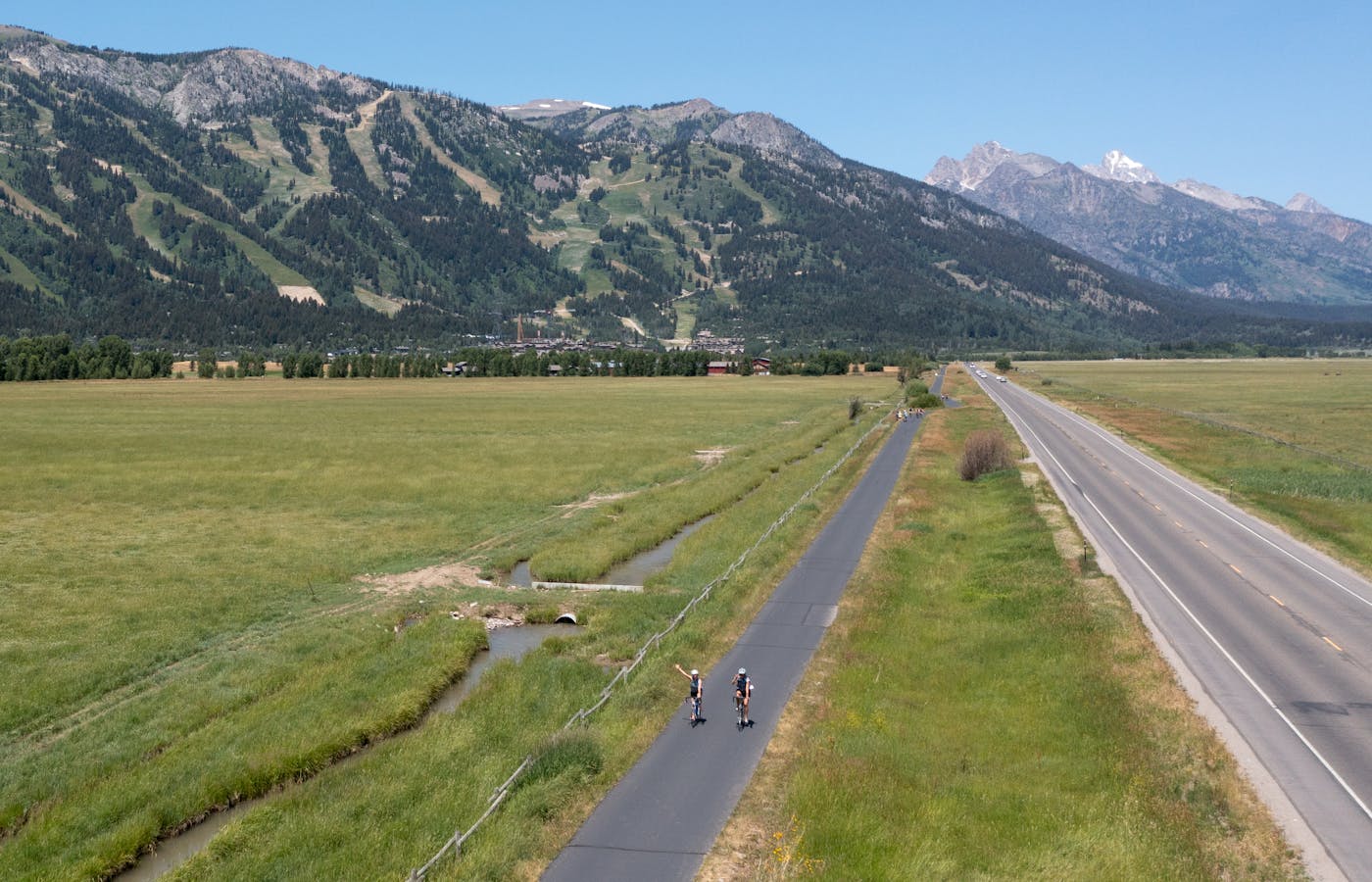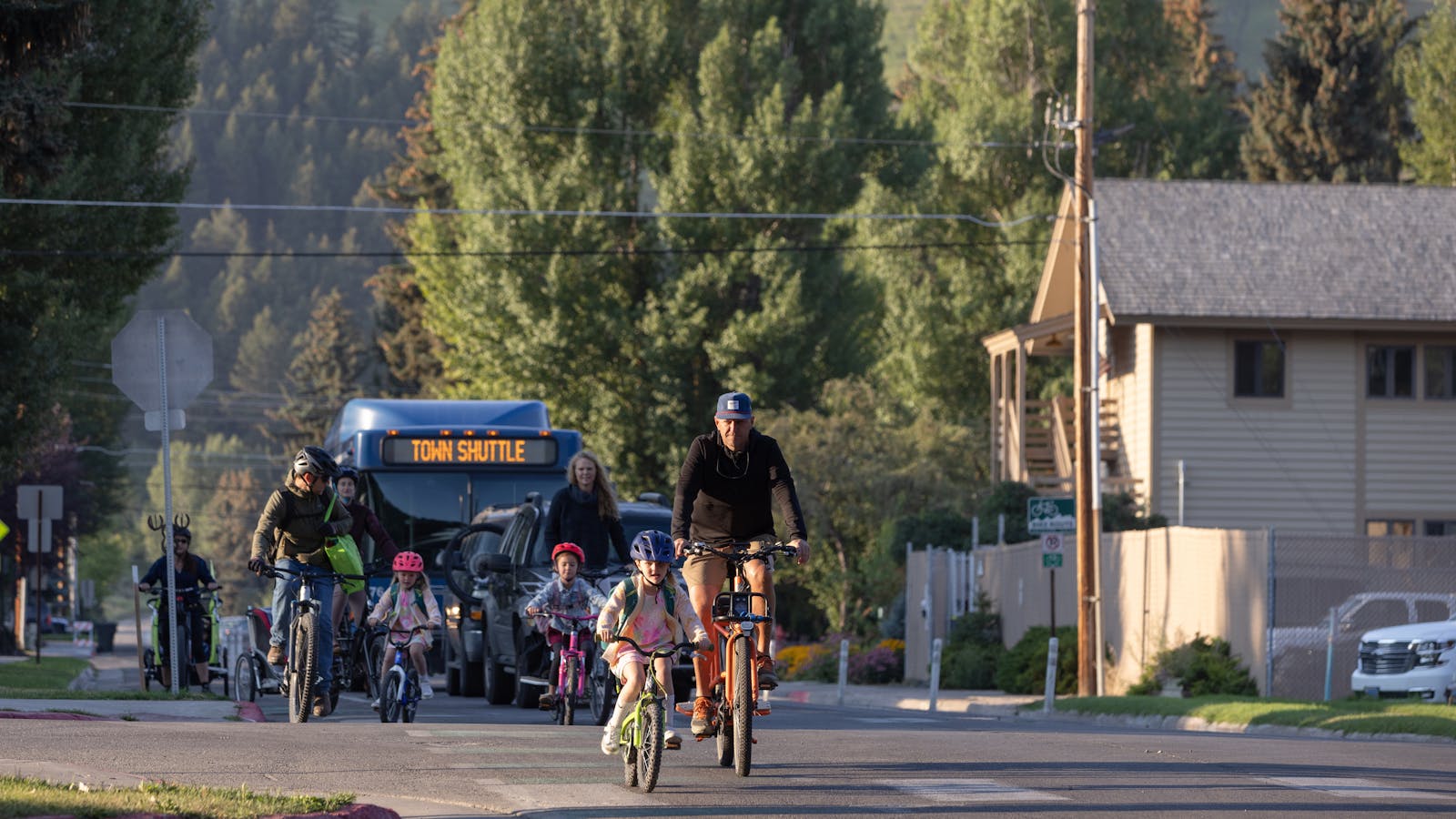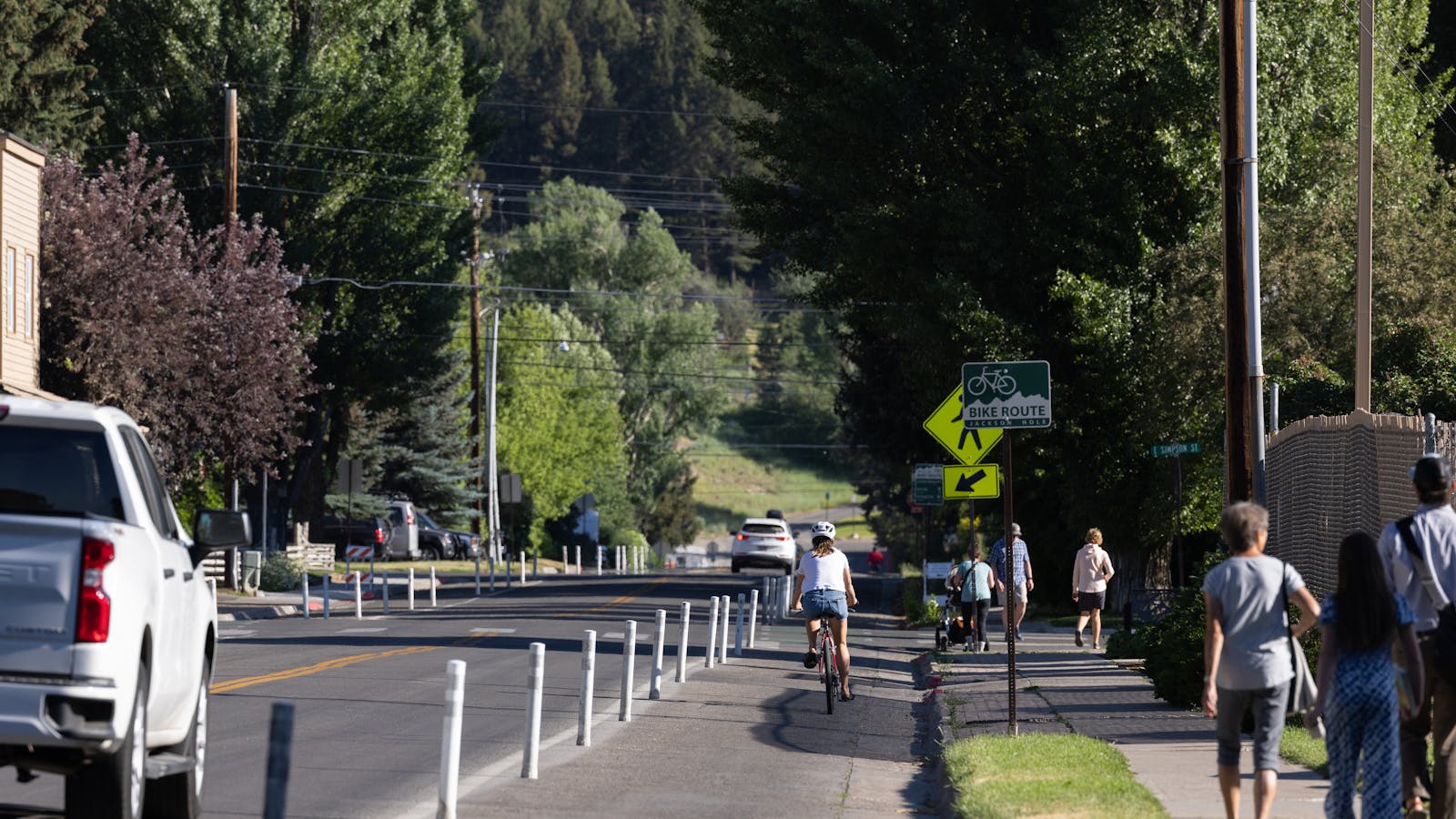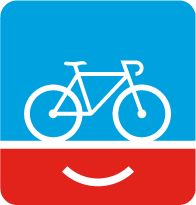From Town to the Tetons, Jackson Is Best Seen By Bike
By: Jack Foersterling, copywriter + editor

With 70 miles of pathways and 150 miles of trails, bicycling is helping to build community in this Wyoming mountain town.
Nestled at the foot of the Teton Mountain Range in western Wyoming, the town of Jackson is perhaps best known for its access to world-class skiing and the picturesque Grand Teton and Yellowstone National Parks. Thanks to the efforts of local advocates and community leaders though, Jackson is increasingly recognized as a great place for bicycling, too.
According to Sam Petri, the movement for better biking started back in 1994 with the founding of Friends of Pathways, Jackson’s local advocacy group for pathways and trails. Founded by Tim Young, a driving force behind the construction of hundreds of miles of walking and biking trails across Wyoming, the organization helped build Jackson’s first bicycle pathway in 1996.
“Today, we maintain 152 miles of dirt trails and 72 miles of separated pathways throughout Teton County, including 15 miles in Grand Teton National Park,” says Petri, who works as communications and advocacy director at Friends of Pathways.
For 2023, Jackson ranked #6 out of nearly 1,500 U.S. cities in PeopleForBikes’ City Ratings, an annual program that evaluates and identifies the best places for bicycling. Jackson scored an impressive 79 out of a possible 100, putting it on par with some of the best places for bicycling in the world. Brian Schilling, pathways coordinator at Jackson Hole Community Pathways, attributes much of Jackson’s success to the connectivity of its bike network.
“No matter where you live, work, or go to school, we’re almost to the point where we have the proper facility to get you there safely,” says Schilling. “The shortfall of a lot of systems is that they have one great rec trail, but it doesn’t get you where you need to go. Our goal is to connect you to all of your daily activities, whether it’s your commute or recreation.”

Similar to many places putting in the effort to make biking safer and more connected, Schilling says one of the biggest challenges in shaping a town that embraces bicycling is overcoming the historic norms of how streets are used.
“When pathways were starting to be constructed 30 years ago, it was a foreign concept. People didn’t understand the need or thought it was a waste of money,” says Schilling, noting that when working with existing streets that people have used the same way for 50 years, there will understandably be some pushback when changes start to be made. “After that period of resistance, however, our goal is that 20 years from now we can look back with a new idea of ‘that’s how it’s always been.’ I look forward to when someone visiting Jackson or someone born in Jackson today thinks, ‘This is normal.’”
With an expansive network of trails connecting residents and visitors to the surrounding county, recent projects have focused heavily on improving bicycling within Jackson’s downtown corridor. In March of 2022, the Jackson Town Council approved the Willow Street safe routes project, which created protected bike lanes along one of the town’s main thoroughfares.

“The project covered a really large stretch of road and the new protected bike lanes really changed how it feels to move down Willow Street,” says Petri, who uses the route to bike with his kids to school. “The route connects people to the rec center, Jackson Elementary, downtown, Snow King ski area, our rodeo grounds and fairgrounds, the library, multiple affordable housing projects, and tons of national forest access. It’s hard to imagine life without it.”
While there was early pushback around how many people would truly use bike lanes in Jackson, Petri says that the numbers don’t lie.
“We see 500 riders per day on Willow Street and 1,000 on the connecting Snow King Avenue protected lane,” says Petri, reiterating how impressive the numbers are for a town of just 10,000 people. “You can see the numbers grow every summer — there are more people biking than ever before.”
For Schilling, the power of pathways comes not only from their ability to get people where they need to go but in fostering a sense of community and connectedness.
“Riding along a pathway in town allows you to have those five-minute conversations with people you can’t have sitting alone in your car,” says Schilling. “Pathways do more than give people a nice bike ride. They create community.”
Bikeways also directly benefit youth, providing them with mobility and independence as they grow up in a small town.
“It starts with riding with mom and dad, then grows to riding to a friend's house or school by yourself,” says Schilling. “As your radius of mobility grows, you can have the whole valley at your disposal by high school. And as a parent, you can feel safe knowing your child can leave home and get wherever they want or need to go safely and without driving. “
Building on that sense of community, Petri says that local support for bike-related projects will be monumental in Jackson’s continued efforts to become even better for bicycling.
“I feel like our community has the appetite for positive change,” says Petri. “With encouraging feedback around our existing network, we know we have the support to keep plugging away and doing the good work.”
Looking ahead, Schilling says he wants to take Jackson’s bike infrastructure to the next level, heavily inspired by work being done in Europe.
“Bollards are good for now, but there’s a whole new level we can take our projects to based on Dutch design. I want biking to feel safe, comfortable, and convenient for everyone, regardless of their age or ability,” he says. “Once you’ve experienced something like that and know it’s possible, why would we do it any other way?”

